Rising Stars
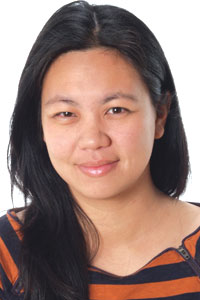 Joan Chiao
Joan Chiao
Northwestern University, USA
http://culturalneuro.psych.northwestern.edu/Lab_Website/Welcome.html
What does your research focus on?
I conduct research in social affective and cultural neuroscience. Currently, my research adopts a ‘cultural neuroscience’ framework to examine how cultural and genetic factors give rise to everyday emotion and social cognition.
What drew you to this line of research? Why is it exciting to you?
Since high school, I have been interested in neuroscience and understanding how the brain works. In college, I also developed a strong passion for diversity and social justice. Fortunately, research in social affective and cultural neuroscience allows me to pursue these interests simultaneously. Ultimately, I hope that my research with others may be able to inform public policy and population health concerns.
Who were/are your mentors or psychological influences?
I have been very fortunate to have a number of intellectually ambitious and influential mentors throughout my training. As an undergraduate at Stanford University, I was mentored by Jennifer Eberhardt, a social psychologist, John Gabrieli, a cognitive neuroscientist, and Alex Golby, a neurosurgeon. They were the first scientists to really teach me of the joy and challenges of interdisciplinary research as well as to encourage me to continue to set high aspirations for myself. My intimate interactions with them early in my research career set the stage for a lifelong commitment to research. During graduate school at Harvard University, Nalini Ambady, a social psychologist, and Ken Nakayama, a vision scientist, were extremely influential in shaping the scope and breadth of my research questions. They were also the first scientists to teach me more of the professional aspects of a research career. Finally, in addition to mentors, I have been fortunate to learn from dedicated and thoughtful collaborators, such as Tetsuya Iidaka of Nagoya University, Ahmad Hariri of Duke University, and Norihiro Sadato of the National Institute for Psychological Sciences in Okazaki, Japan.
To what do you attribute your success in science?
Any success that I may have had thus far in science is due to having wonderful mentors, friends, and colleagues who have been supportive of my research ideas and endeavors, no matter how implausible or impractical they may have seemed at the time.
What’s your future research agenda?
I’m focusing my future research on cultural neuroscience. Cultural neuroscience is an emerging field that examines how cultural values, practices, and beliefs shape, and are shaped, by neural systems. Historically, the study of group differences, particularly biological explanations for group differences, has been taboo. But we have better theories and tools at our fingertips to explore some of the oldest questions about human nature and human diversity. I’m very eager to understand how cultural and genetic diversity affect brain and behavior and anticipate spending the next 10-20 years exploring this question.
Any advice for even younger psychological scientists? What would you tell someone just now entering graduate school or getting their PhD?
The best advice I got as a grad student is to not be afraid to take risks in developing your ideas and to study what you are truly fascinated by. Graduate school and beyond is a long road with few extrinsic rewards. The sooner that you can find your intrinsic motivation, the happier you will be to develop a long research career.
What publication are you most proud of or feel has been most important to your career?
Chiao, J. Y. & Blizinsky, K. D. (2010). Culture-gene coevolution of individualism-collectivism and the serotonin transporter gene (5-HTTLPR). Proceedings of the Royal Society B: Biological Sciences, 277 (1681), 529-537.
I’m proud of this publication because it cost Kate Blizinsky and I nothing to make this interesting discovery. We also received sage advice along the way from several generous colleagues, which made this a lot of fun to work on together.
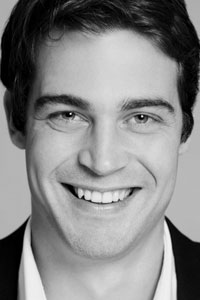 Jaap Denissen
Jaap Denissen
Humboldt-University Berlin, Germany
www.psychology.hu-berlin.de/staff/1682036
What does your research focus on?
I am interested in longitudinal transactions between persons and situations. How do people change their behavior in response to situational demands, both in the short term (e.g., on a day-to-day level) and in the longer term (e.g., during an important life transition)? How do people differ in these responses? What effects do these differences have on important life outcomes, such as well-being and friendship formation?
What drew you to this line of research? Why is it exciting to you?
People tend to underestimate how different we are from each other. When we are born, we begin life with certain biological and genetic foundations, but we also change as a response to social demands and experiences. It is fun to watch people develop and change! It is also fascinating to see how people react to these emerging individual differences. For example, can they accept being different from each other and still be good friends? And do people have an accurate view of these individual differences in themselves and others? To me, these topics are truly fascinating because they touch existential questions about the value of self-insight and the importance of similarity.
Who were/are your mentors or psychological influences?
Dan McAdams has sparked a continuing fascination about the complexity and richness of personality, both with his research and his textbook on personality psychology that I read when I was a student. Moreover, Jens Asendorpf, my former PhD advisor, has taught me to always question the validity and boundaries of my knowledge.
To what do you attribute your success in the science?
Science is both a collective and individual enterprise, so it can be difficult to separate the two in figuring out what has contributed to a career. I definitely benefited from contacts and conversations with great colleagues and mentors. Also, I guess I always try to push the limits of my own knowledge and think outside of the box.
What’s your future research agenda?
Together with my colleague, Michael Dufner, I am trying to learn more about the consequences of self-insight. Is “knowing thyself” beneficial in terms of life satisfaction and niche selection? And what kinds of personality traits can explain that some people have more of it than others? In addition, with Wiebke Bleidorn, I am embarking on an in-depth investigation of what happens when people become parents. What kind of demands does this place on their self-regulation skills, and how do they cope with that? How does the experience of being a mom or a dad change the way we tell our life story to ourselves and others?
Any advice for even younger psychological scientists? What would you tell someone just now entering graduate school or getting their PhD?
Try to stay intrinsically motivated! If you think science focuses too much on external criteria (number of papers, grants, network connections), don’t turn your back on it but try to be different instead. Focus on the topics that really fascinate you instead of trying to adopt every methodological or conceptual fashion. This will give you the energy for hard work and creative thinking. Besides, it’s more fun that way.
What publication are you most proud of or feel has been most important to your career?
Selfhout, M., Denissen, J. Branje, S., & Meeus, W. (2009). In the eye of the beholder: perceived, actual, and peer-rated similarity in personality, communication, and friendship intensity during the acquaintanceship process. Journal of Personality and Social Psychology, 96, 1152-1165.
It’s a paper I co-authored with Maarten van Zalk (formerly Selfhout) in 2009 entitled “In the eye of the beholder: Perceived, actual, and peer-rated similarity in personality, communication, and friendship intensity during the acquaintanceship process.” It followed up on largely unsuccessful efforts to study the effects of personality similarity on communication during my dissertation. I am proud of this publication because I did not give up after initial disappointments, but instead tried harder to come up with a more informative study, which ended up getting published in my field’s flagship journal, JPSP.
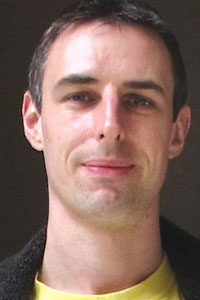 Andrew Livingstone
Andrew Livingstone
University of Stirling, UK
http://www.psychology.stir.ac.uk/staff/staff-profiles/academic-staff/andrew-livingstone
What does your research focus on?
Broadly, I’m interested in social identity, group processes, and intergroup relations. I’ve also developed a particular interest in the role of emotion in these phenomena. Specific lines of research have focused on (1) the role of group norms and social identity content in intergroup relations; (2) resistance to intergroup inequality and threat by members of minority groups; and (3) emotion as a basis for social identity. I’m also fortunate to have been involved in research into crowd behavior, led by Clifford Stott at University of Liverpool.
What drew you to this line of research? Why is it exciting to you?
Intergroup conflict, inequality, and resistance are of course prominent in the news media, but they are also a feature of my own background. I grew up in Northern Ireland at a time when almost every aspect of life was colored by intergroup division, and violence was never far away. Conflict was woven into the fabric of everyday life, and quite simply I wanted to know why, and what could be done about it. The fact that I haven’t yet found a compelling answer to these questions has kept me in the field since then.
Who were/are your mentors or psychological influences?
As mentors, and in the order in which I met them, I owe a great deal to Steve Reicher of University of St. Andrews, Alex Haslam of the University of Exeter (my PhD supervisor), Russell Spears of University of Groningen, and Tony Manstead of Cardiff University. They are each intellectual leaders who also set the highest of standards as teachers and as colleagues. In terms of other influences, reading the work of Henri Tajfel and John Turner, who sadly passed away in July, is inspiring.
To what do you attribute your success in the science?
Having been fortunate enough to work with the people listed above, and more generally to have a fantastic set of colleagues working in a supportive and collegiate atmosphere. Without their influence, I probably wouldn’t even have pursued a PhD, never mind embarked on a career in research. Other than that, one thing that tends to be learned the hard way is not to get too discouraged by negative feedback, and to use it to make your work stronger and better. A big part of this is my conviction and passion for the topic I research and keeping sight of the big-picture issues that make it interesting.
What’s your future research agenda?
I hope to continue many of the lines of research in which I’m currently involved. I’d also like to pursue other fledgling projects relating to the role of group status in shaping characterizations of intergroup “conflict,” and the role of what are termed “social-creativity” strategies by members of disadvantaged groups. Beyond that, intergroup relations are so vast in their complexity and importance that I’m sure other issues will spark my interest in ways that I can’t foresee just yet.
Any advice for even younger psychological scientist? What would you tell someone just now entering graduate school or getting their PhD?
No matter what gets thrown at you, keep reminding yourself of why you feel passionate about the subject and of the big issues that brought you into the field in the first place. This is also a lot easier if you can find and cultivate links with like-minded colleagues. Intellectual collaboration is obviously one aspect of this, but don’t underestimate the value of the social support and camaraderie that it brings. Finally, proper inspiration often comes from reading beyond the borders of psychology.
What publication are you most proud of or feel has been most important to your career?
It’s not in the most “high-impact” journal, but this article articulates much of what I think about the relationship between psychological group membership and intergroup relations. It was also the first publication from my PhD as lead author, so evokes fond memories for that reason too!
Livingstone, A., & Haslam, S. A. (2008). The importance of social identity content in a setting of chronic social conflict: Understanding intergroup relations in Northern Ireland. British Journal of Social Psychology, 47, 1-21.
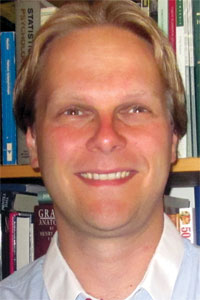 Lauri Nummenmaa
Lauri Nummenmaa
Aalto University, Finland
What does your research focus on?
I study the brain basis of emotions and social cognition. Using the multimodal brain-imaging approach, I aim to understand the neural circuitry that enables us to navigate the social and physical world unharmed. In particular, I am interested in how the brain automatically processes the emotional and social cues conveyed by other people, and how this enables our brains to tune our behavior and mental processes to manage, for example, social interactions.
What drew you to this line of research? Why is it exciting to you?
I simply stumbled upon brain imaging. One day my PhD supervisor mentioned that it is possible to do fMRI at the University hospital and that we could give it a go. I thought that it was an exciting idea, so we went ahead and conducted an fMRI study on eye-gaze following. We had to learn lots of things ourselves and only afterwards found out that our study was actually the first successful fMRI experiment ever done at the site. If I had known that in advance, I would probably never have dared to begin working on that project! But ever since I have loved studying brain function. The brain is an unbelievably complex organ that governs intricate psychological and behavioral processes. And when you bring two or more people into the same room, you suddenly have brains that are communicating with each other and interpreting the expressions, gestures, and vocalizations of the other person. This astonishing feat never ceases to amaze me.
Who were/are your mentors or psychological influences?
I have been lucky, as I have had numerous outstanding supervisors and collaborators during my career. My PhD supervisor Jukka Hyönä of the University of Turku had a wonderful habit of casually using the Socratic method to encourage us students to think critically. His office door was always open, and he was always excited to see and discuss the new data we had acquired. During my postdoc at MRC CBU, Andy Calder introduced me to the neuroscience of face perception, and while working with his group, I really learned the nuts and bolts of functional neuroimaging. At the moment, I feel privileged to be able to work with scientists such as Riitta Hari and Mikko Sams at the Aalto University; they constantly bombard me with great ideas and novel ways of thinking, so every day at the lab is really exciting.
To what do you attribute your success in the science?
During my career, I have had wonderful mentors and labmates who have provided both top-class training in scientific thinking and emotional support during hard times. So I have really learned to value my ‘academic family’ and think that great science is made by successful teams rather than by successful individuals.
What’s your future research agenda?
I want to understand the organization and dynamics of the brain networks that processes social and emotional signals under naturalistic conditions. Although rigorously controlled laboratory experiments are the backbone of neuroscience, they often fail to encompass the sensory and psychological complexity of our daily lives. That is why we are measuring brain function while, for example, viewing complex prolonged stimuli such as Hollywood feature films or during two-person interaction. This approach poses huge technical as well as computational challenges. Luckily, we have collaborators and clever PhD students who are extremely skilled in signal analysis. Without them this line of work would never be possible.
Any advice for even younger psychological scientists? What would you tell someone just now entering graduate school or getting their PhD?
Have fun! Although science is serious business, it should never be boring. So choose a topic that you feel excited about, and try to find a research group that you feel comfortable with. Also, when planning your work, try to focus on big questions. Design every single study so well that it could at least in principle be published in one of the top journals. Of course, only a fraction of papers will eventually be published in Nature or PNAS (none of mine have been!), but if you aim there, you force yourself to raise the bar and end up with good psychological science.
What publication are you most proud of or feel has been most important to your career?
Nummenmaa, L., Hyönä, J., & Calvo, M. G. (2010). Semantic categorization precedes affective evaluation of visual scenes. Journal of Experimental Psychology: General, 139, 222-246.
This was the final piece of a long series of behavioral studies on visual emotional processing that we started during my PhD work. It tackles the classic question of the primacy of cognitive versus emotional processing in the visual system. I think this paper is a nice example of “slow science.” With seven experiments, countless controls, and different paradigms and stimulus sets, I feel we could really provide a conclusive answer to the question we posed.
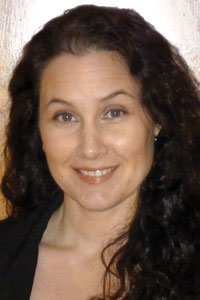 Nickola Overall
Nickola Overall
University of Auckland, New Zealand
http://www.psych.auckland.ac.nz/uoa/nickola-overall
What does your research focus on?
Intimate relationships can have immense benefits, such as when support from relationship partners protects individuals from stressful events and helps them reach their personal goals. Close relationships can also undermine psychological and physical wellbeing, such as when couples experience relationship conflict. My research investigates both the benefits and costs of intimate relationships, with a particular emphasis on the relative success of different communication strategies used when couples are trying to resolve relationship problems or support each other. This includes identifying what strategies help couples maintain healthy relationships versus those that lead to dissatisfaction and dissolution.
What drew you to this line of research? Why is it exciting to you?
At a general level, I am invested in this area because relationship research is relevant to everybody and has important practical implications. The challenges of dyadic research also mean that relationship researchers adopt novel and cutting-edge methods and analytic techniques.
At a more specific level, what I find most exciting at the moment is that understanding relationship processes requires contrasting effects across partners and across time. For example, our research has shown that the costs and benefits of different communication strategies depend on whose perspective you take — the person wanting change (agent) versus the person targeted for change (target). Not surprisingly, hostile and demanding tactics elicit defensiveness and damage satisfaction in the targeted partner. However, because these same tactics convey the nature and severity of the problem, targets are more likely to change across time, resulting in desired improvement and satisfaction for the partner who wanted change. In contrast, warm and affectionate tactics minimize conflict and preserve targets’ satisfaction, but these tactics downplay the severity of the problem, do little to spur target change, and therefore foster dissatisfaction for the agent who continues to want change. Positive-direct communication strategies, such as reasoning and offering possible solutions, are likely to be the optimal approach for improving relationships because these tactics balance the needs of both partners by producing desired improvement while reassuring targeted partners that they are valued and cared for.
Who were/are your mentors or psychological influences?
Garth Fletcher of Victoria University of Wellington and Jeff Simpson of the University of Minnesota motivate me with their passion and knowledge and inspire me to contribute valuable research with tenacity, graciousness, and balance.
To what do you attribute your success in the science?
Garth, Jeff, and determinedly sticking at it until I figure it out.
I also think the review process gets a bad rap — for me, responding to reviews has always resulted in a better product and made me a better scientist. The comments and feedback I have received from leading scholars like John Holmes of the University of Waterloo and Dave Kenny of the University of Connecticut have improved the quality of my work and propelled my research in new directions. These scholars, and others in the US and Canada, are also amazingly accommodating when a Kiwi knocks at their door and asks, “What do you think about …”
What’s your future research agenda?
I have several ongoing research programs I am excited about. All involve adopting a dyadic approach to understanding relationship processes by mapping how the responses of each partner jointly influence the other. The program I mentioned above focuses on identifying the mechanisms through which communication strategies resolve or magnify relationship problems. Another program applies a dyadic perspective to support contexts. Support can have benefits, such as helping people achieve their personal goals, but support can also have costs, such as producing feelings of incompetence and limiting the resources support providers have to fulfil their own needs and goals. The specific types of strategies that both support seekers and support providers use, however, are likely to determine when, and for whom, support will have benefits versus costs. Other processes I am actively investigating involve how partners buffer people’s insecurities, how different contexts influence the accuracy with which intimates understand their partners’ thoughts and feelings, and how sexist attitudes of both men and women shape personal and relationship wellbeing.
Any advice for even younger psychological scientists? What would you tell someone just now entering graduate school or getting their PhD?
As an emerging scholar, the pressure to publish can mean your early career is focused on pumping the research out. Try not to forget why your research is important and the lasting impact you want your research to make. I am trying to take my own advice because I believe it will lead to better, more meaningful research.
What publication are you most proud of or feel has been most important to your career?
Overall, N. C., Fletcher, G. J. O., Simpson, J. A., & Sibley, C. G. (2009). Regulating partners in intimate relationships: The costs and benefits of different communication strategies. Journal of Personality and Social Psychology, 96, 620-639.
In this study, we assessed couples’ communication strategies as they discussed relationship problems and identified the communication strategies that were most likely to produce improvement over time. I selected this paper because it is a good example of the dyadic approach I am committed to and has motivated several of my current studies.
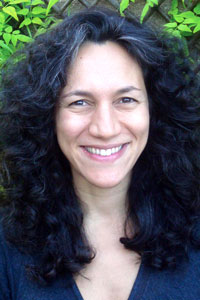 Gaia Scerif
Gaia Scerif
University of Oxford, UK
http://psyweb.psy.ox.ac.uk/abcd/index.html
What does your research focus on?
We live in complex multimodal environments, and yet even as infants we direct attention very efficiently to select what is relevant into memory, learning, and action selection. I am fascinated by processes of attentive learning, and therefore by the following questions: How do we come to learn what to attend to and how to control our attention to learn new information over developmental time? Why do some individuals really struggle to do so? What are the cascading consequences of attention differences over developmental time?
What drew you to this line of research? Why is it exciting to you?
When I first started working with children with a developmental disorder associated with a clearly defined genetic aetiology (Fragile X syndrome), two open questions swept me off my feet: It is clear that attention difficulties impact learning across cognitive domains every day, but exactly why and how? Unveiling these mechanisms is the first step to effective intervention, but also has the potential to give insights into the typical trajectories of attentive learning. Secondly, why do some children with disorders of identical etiology present with very poor learning outcomes while others really do quite well? These differences across children point to the need to understand gene-gene and gene-environment interactions in constraining attention development and its variable neurocognitive outcomes. I fell in love with these problems and continue to be excited by how studying neurocognitive mechanisms of attention might address them.
Who were/are your mentors or psychological influences?
I have been very fortunate: Amazing mentors have pushed me to think about neurocognitive and developmental processes and continue to do so. Unfortunately, here I can only name a few: First and foremost, Annette Karmiloff-Smith of Birkbeck, University of London taught me, and continues to remind me, how development is key to understanding cognitive outcomes; BJ Casey of Cornell University opened my eyes to developmental cognitive neuroscience; and Kim Cornish of Monash University and Dorothy Bishop of Oxford University continue to inspire questions about and from children with developmental disorders — including the real life implications of understanding their strengths and difficulties.
To what do you attribute your success in science?
Again, I have been very fortunate: Great collaborators in the United Kingdom, North America, and Australia — along with members of my research group here in Oxford — continuously push us all to refine theoretical frameworks and methodological choices. Success in (and enjoyment of) science for me most definitely comes from these collaborative efforts. In addition to continuous scientific exchanges, success comes from the many conversations with and input from parents of “our” volunteering children, as they have helped us keep the science grounded in questions that would be relevant to them.
What’s your future research agenda?
I continue to be fascinated by mechanisms of attentional control over developmental time in and of themselves, but would like to integrate them more and more with understanding their consequences on learning across cognitive domains. For example, how exactly do aspects of attention interact with working memory, and in turn with how information in this mental workspace is consolidated into long-term memory? How do these interactions impact learning in complex environments? If these can be changed by cognitive intervention, how do improvements inform environmental constraints on genetic predispositions?
Any advice for even younger psychological scientists? What would you tell someone just now entering graduate school or getting their PhD?
Continue to work on methodologies and sound experimental paradigms, but keep the big questions in mind too: These are going to keep you excited for many years to come!
What publication are you most proud of or feel has been most important to your career?
Scerif, G., & Karmiloff-Smith, A. (2005). The dawn of cognitive genetics? Crucial developmental caveats. Trends in Cognitive Sciences, 3, 126-135.
This publication is where I first articulated my focus on understanding gene-brain-environment interactions over developmental time with my mentor, Annette Karmiloff-Smith, so I continue to be very proud of it.
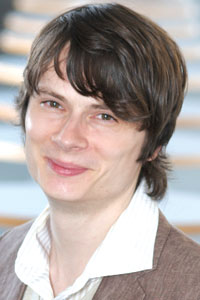 Lars Schwabe
Lars Schwabe
Ruhr-University Bochum, Germany
http://www.cog.psy.ruhr-uni-bochum.de/larss.html
What does your research focus on?
At the intersection of cognitive psychology, neuroscience, and endocrinology, my research focuses on how stressful experiences influence cognitive processes. In particular, I am interested in how stress and stress hormones shape our memories and how they affect the interactions of multiple, declarative and non-declarative memory systems.
What drew you to this line of research? Why is it exciting to you?
To use the words of Jane Austen: ‘‘If any one faculty of our nature may be called more wonderful than the rest, I do think it is memory. There seems something more speakingly incomprehensible in the powers, the failures, the inequalities of memory, than in any other of our intelligences. The memory is sometimes so retentive, so serviceable, so obedient; at others, so bewildered and so weak; and at others again, so tyrannic, so beyond control! We are, to be sure, a miracle every way; but our powers of recollecting and of forgetting do seem peculiarly past finding out.’’ There is nothing to add, our memory is simply fascinating and I have been interested in the factors that influence our memories for long. Stress is a phenomenon that is common in modern societies. We experience stress, in varying degrees, every day, and people who have experienced extremely stressful events suffer from the memories of these events often for years. This is the reason why I became interested in stress effects on memory.
Who were/are your mentors or psychological influences?
I am very fortunate to have been directly influenced by many talented and generous scientists. Chief among them is Melly Oitzl of Leiden University. She is a remarkable scientist and I learned a lot from her, especially during my first years as a PhD student. I owe her a great debt. More recently, at Ruhr-University Bochum, I have benefited from Oliver Wolf’s expertise. He encouraged me to employ techniques such as functional magnetic resonance imaging to learn more about the neural basis of memory processes.
To what do you attribute your success in the science?
I guess I have been lucky to be at the right place at the right time. In addition to that, it is probably a combination of immense curiosity and a lot of hard work.
What’s your future research agenda?
Over the past five years, my colleagues and I have shown that stress and glucocorticoid stress hormones modulate multiple memory systems in favor of rather rigid, ‘habit’ memory and at the expense of more flexible, ‘cognitive’ memory. Using techniques such as functional magnetic resonance imaging (fMRI), I am now aiming to unravel the underlying brain mechanisms.
Any advice for even younger psychological scientist? What would you tell someone just now entering graduate school or getting their PhD?
(1) Read as much as you can. You will notice that most of the questions you are asking have been asked before — and for some of them there might be already something like an answer.
(2) Keep in mind that there is not the recipe for scientific success. However, curiosity, creativity, and, hard work are probably key ingredients and it won’t work without them.
What publication are you most proud of or feel has been most important to your career?
Schwabe, L., Oitzl, M. S., Philippsen, C., Böhringer, A., Richter, S., Wippich, W., & Schächinger, H. (2007). Stress modulates the use of spatial and stimulus-response learning strategies in humans. Learning & Memory, 14, 109-116.
This article is probably not my best publication, but it was my first publication in a scientific journal. I learned a lot about scientific writing while writing this manuscript, and the finding that stress may modulate the interaction of multiple memory systems in humans has inspired much of my work.
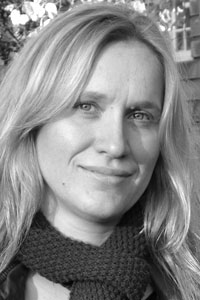 Nicole Tausch
Nicole Tausch
University of St. Andrews, UK
http://psy.st-andrews.ac.uk/people/lect/nt20.shtml
What does your research focus on?
I’m generally interested in the psychological factors involved in intergroup relations, prejudice and discrimination, and group conflict. As part of my PhD, I investigated intergroup relations in Northern Ireland and India. I looked at how different types of perceived threats shape intergroup attitudes and how different forms of intergroup contact affect such threat perceptions. Working in contexts such as India where there are large disparities in status and power between groups increased my awareness of the role of group inequality in intergroup conflict and created an interest in the psychological processes involved in social change. This also led me to take a more critical look at intergroup contact as an intervention to reduce intergroup conflict and at prejudice reduction as an end in itself. My recent work on contact has therefore focused on the potentially counter-productive effects of contact for members of disadvantaged groups and demonstrated that contact may in fact decrease awareness of inequality and discrimination, and reduce willingness to act for social change among members of disadvantaged groups. Another current line of research investigates the factors that influence willingness to participate in political action. I’m particularly interested in finding out under which conditions people opt for non-normative as opposed to normative forms of action, and when they come to support methods such as violence and “terrorism” to address an injustice.
What drew you to this line of research? Why is it exciting to you?
How to reduce social injustice, discrimination, and group inequality and how to create more inclusive societies are among the most pressing questions faced by policymakers. I think that social psychological research can speak to many of these challenges, and I’m excited to work on such vital issues. It is also important to me to highlight that political violence is not an aberration of human psychology, but often a rational act that is driven by a particular set of social conditions — and that can be explained by social psychological theory. Realizing this could have important implications for how we address the issue.
Who were/are your mentors or psychological influences?
I have been blessed to have a number of great mentors and collaborators. I would like to mention Bernd Six, who first sparked my interest in social psychology when I was an undergraduate at the University of Halle-Wittenberg in Germany. I’m indebted to Miles Hewstone, my PhD supervisor at the University of Oxford, who encouraged me to embark on a PhD in social psychology and who has been incredibly supportive ever since. Russell Spears has been a huge influence and great collaborator in the last few years while I was a post-doc at Cardiff University. Last but not least, I would like to mention Julia Becker at the University of Marburg, Oliver Christ (also at the University of Marburg), and Tamar Saguy at the IDC Herzlyia, with whom I have worked on many of my recent projects on collective action and intergroup contact and who have been inspiring in many ways.
To what do you attribute your success in the science?
Any success I may have had is certainly due to the great mentors and collaborators I have had (see above!); probably also luck, patience, and enthusiasm for research.
What’s your future research agenda?
I would like to learn more about the social conditions and psychological factors involved in non-normative collective action and will be developing that line of research further. I’m also interested in finding out what forms of intergroup contact would create commitment to social change among both advantaged and disadvantaged groups, so this is something I will pursue in the future. (It is easy to criticize existing approaches, but much harder to come up with a viable alternative!)
Any advice for even younger psychological scientists? What would you tell someone just now entering graduate school or getting their PhD?
Find an area of research that you are genuinely interested in and passionate about. Accept that you can’t know it all in your first year of graduate school and be open to advice. Don’t be afraid of statistics. Statistical methods are wonderful tools that allow us to answer (some of) the questions that fascinate us. Find collaborators who inspire you and whom you love working with. Write down your ideas; even if they seem preposterous now, you might come back to them years down the line.
Please write a sentence or two about the publication you are most proud of or feel has been most important to your career. As challenging as it may be, please limit it to one publication.
Tausch, N., Becker, J., Spears, R., Christ, O., Saab, R., Singh, P., & Siddiqui, R. N. (2011). Explaining radical group behaviour: Developing emotion and efficacy routes to normative and non-normative collective action. Journal of Personality and Social Psychology, 101, 129-148.
In this paper, we show that our theoretical models of collective action need to be adjusted and extended to account for non-normative collective action such as political violence. I like this paper because we were able to test our theoretical model in three diverse and interesting contexts (German students’ protests against tuition fees, Indian Muslims’ responses to disadvantage, and British Muslims’ reactions to British foreign policy), and because we make two important (I think) points, namely that (1) contempt rather than anger predicts support for non-normative action (in fact, we view anger as a healthy political emotion that is linked to normative collective action) and (2) that non-normative action likely results from low rather than high efficacy, suggesting that non-normative forms of action are chosen when the ingroup is seen as powerless to address an injustice.
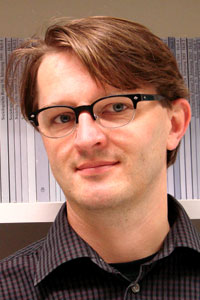 Peter F. Titzmann
Peter F. Titzmann
University of Jena, Germany
http://www2.uni-jena.de/svw/devpsy/staff/peter_e.html
What does your research focus on?
The focus of my research is on the development of children and adolescents with a migration background and the interplay between normative development and migration-related adaptation. For example, we investigated specific acculturation-related hassles of adolescent immigrants in Israel and Germany that can add to the normative demands of adolescence. In two other studies we examined whether delinquency is predicted by the same or different factors among two groups, namely immigrant and native adolescents; we also compared the autonomy expectations of these two groups. A fourth core area has been the investigation of inter-ethnic friendships of immigrant adolescents.
What drew you to this line of research? Why is it exciting to you?
I became interested in migration research when I started to work as a research associate at Jena University. There I was involved in a longitudinal project that addressed the adaptation of immigrant adolescents from the former Soviet Union in Israel and Germany. It was surprising to see how successful the majority of immigrant adolescents are, despite the fact that many have to deal simultaneously with normative developmental tasks, with cultural differences between family and the new society (e.g., in school), with migration-related stress (e.g., discrimination), and many also with economic strain. As today’s societies are increasingly comprised of individuals with various ethnic and cultural backgrounds, research on factors that help in the successful adaptation of migrant youth is also meaningful.
Who were/are your mentors or psychological influences?
The most influential person in this regard is certainly Rainer K. Silbereisen from the Friedrich Schiller University Jena, who has been a mentor through recent years. Rainer is very interested in the interplay between context and individual, has a very broad knowledge in scientific theories and methods, and has been working for many decades in interdisciplinary and international settings. I profited substantially from his input. Rainer also encouraged me to attend conferences in order to learn and to exchange my ideas and results with others in the field. Other influential people have been Hannelore Weber at Greifswald University, who initiated my interested in psychological research during my undergraduate studies; the people at the Stress Research Unit at the University of York (UK), and of course colleagues and guests here at the Department of Developmental Psychology and Center for Applied Developmental Science, who have been an invaluable source of support and knowledge.
To what do you attribute your success in the science?
I feel rather too early in my career to talk about “success,” but the research conducted thus far would not have been possible without personal perseverance and curiosity, the support of other people who had faith in my work, and the good fortune sometimes to be in the right place at the right time. I would also like to add that the ‘other people’ include not only my colleagues or co-authors, but also the student assistants and project participants that have often been a source of inspiration and encouragement for my work.
What’s your future research agenda?
For a while I would like to continue to work on migration-related topics. Currently my interest is more in the dynamics in immigrant families and whether the status of immigrant adolescents within the family can change due to the transition to another country.
Any advice for even younger psychological scientists? What would you tell someone just now entering graduate school or getting their PhD?
As conducting research is quite a complex task, there is obviously a lot one could think of here. There are, however, two points I found most helpful. First of all, I would recommend starting writing as early as possible because it needs training by doing. Second, discuss the work you are doing with diverse people — diverse in terms of academic level and research background — as this brings in different perspectives and ideas.
What publication are you most proud of or feel has been most important to your career?
One of the most exciting studies compared longitudinal changes in autonomy expectations (i.e. how far in the future adolescents expect to reach autonomy by showing a certain behavior, such as having a first girlfriend or drinking alcohol). Young immigrant adolescents who came to Germany at earlier ages were not distinguishable from their native age mates in level and rate of change in autonomy expectations. Late adolescent immigrants, however, who had spent a substantial portion of their lives in the former Soviet Union, expected to reach autonomy at a later age than same-aged natives and changed some of their expectations (concerning behaviors that elude parental control) towards those of native adolescents. I like this study as it highlights how and at what age “culture gets into individuals,” whether developmental changes are normative for adolescents even within a culture, and to what extent a cultural imprint is subject to change when an individual is exposed to a new cultural setting.
Titzmann, P. F., & Silbereisen, R. K. (in press). Acculturation or development? Autonomy expectations among ethnic German immigrant adolescents and their native German age-mates. Child Development.
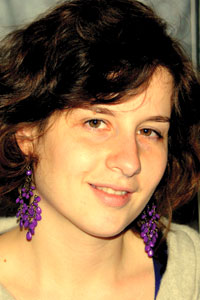 Yana Weinstein
Yana Weinstein
Washington University in St. Louis, USA
What does your research focus on?
I have very broad interests, but most of my research converges on the misperceptions we hold with regards to our cognitive functions. Examples of this include: false memory – how is it that we can come to believe we saw something that didn’t happen?; evaluations of test performance – what factors can influence whether we are optimistic or pessimistic about our performance on a test?; and study time allocation – why don’t we allocate more study time to material that is more likely to be forgotten?
What drew you to this line of research? Why is it exciting to you?
I have always been fascinated by the disconnect that so often occurs between objective reality (such as it might be, though we can never really measure it perfectly) and people’s self-perceptions. During my undergraduate studies, I also became intrigued by the pervasive fallibility of human memory, and our reluctance to accept this fact. So, bringing those two interests together, I decided to look at a variety of situations that produce erroneous metacognitive judgments, with a focus on the erroneous judgments we make about how memory functions.
Who were/are your mentors or psychological influences?
I have been very lucky to have had wonderful mentors who were not only exciting researchers but also kind people. I was fortunate enough to work with Evan Heit and Kimberley Wade during my undergrad, with David Shanks for my PhD, and with Roddy Roediger and Kathleen McDermott for a post-doc. Kimberley’s “Psychology and Law” class was instrumental in shaping my research interests. I am particularly indebted to David who took a chance on me and my research project (false memory) even though it wasn’t his primary interest, and continues to endorse my work and support me in my career years after I have left his lab. Kathleen has helped me develop my theoretical analysis skills, and Roddy has been a huge inspiration as well as an amazingly understanding and supportive mentor. But I wouldn’t have embarked on this career was it not for Evan Heit, who recommended me for grad school even though he gave one of my papers the worst grade I would ever receive during my undergrad (though I’m sure he never realized how confusing that was to me!). I have also had some great collaborators who have kept me excited about my research, too many to name here, but in particular I am grateful to Rob Nash who has helped me continue thinking about the research I started during my PhD. In terms of broader Psychological influences, I also draw heavily from the cognitive biases tradition established by Tversky and Kahneman (see below in Q7).
To what do you attribute your success in the science?
This is where I’m supposed to say “hard work and determination”, right? I’m really not sure. Of course, my mentors have been a huge factor, helping me stay on the right track with my research goals. The fact that I really enjoy the whole process – from designing the experiment, programming it, collecting the data, analyzing the data (my favorite part!), and then writing up – means that the whole enterprise feels more like a hobby than a real job. I also learned a lot of timesaving techniques (for programming, data manipulation, etc.) through working for a decision-making consultancy, which has helped my productivity levels enormously.
What’s your future research agenda?
There are still various areas of Psychology that I would like to learn about before I settle on a narrow research agenda. I am currently working in a Clinical Psychology lab and learning all about the study of Personality – so this angle may show up in my work in the near future! Eventually I hope that I can bring my varied experiences together and create a lab with a multi-disciplinary approach to the study of memory and metacognition.
Any advice for even younger psychologists? What would you tell someone just now entering graduate school or getting their PhD?
Take your time to think about what it is that interests you and don’t get discouraged along the way if you feel like you still haven’t found your “thing” after a few years. Also, people skills are far more important in academia than you might imagine. You could probably get by as a hermit if you are very productive, but you’ll be more successful if you enjoy meeting new people and communicating your research.
Please write a sentence or two about the publication you are most proud of or feel has been most important to your career. As challenging as it may be, please limit it to one publication.
I think my best publication so far is one that has received comparatively little attention – Weinstein, Y., & Roediger, H. L. (2010). Retrospective bias in test performance: Providing easy items at the beginning of a test makes students believe they did better on it. Memory & Cognition, 38, 366-376. This paper holds a special place in my heart because the idea for the very simple manipulation (changing the order of the questions on a test to see how that affects evaluations of performance) came to me while I was watching an inspirational talk by Daniel Kahneman at my very first Psychonomics meeting (in 2008). I also think the results are pretty striking, and the original experiment spurned a whole line of research that I am currently in the process of writing up.





APS regularly opens certain online articles for discussion on our website. Effective February 2021, you must be a logged-in APS member to post comments. By posting a comment, you agree to our Community Guidelines and the display of your profile information, including your name and affiliation. Any opinions, findings, conclusions, or recommendations present in article comments are those of the writers and do not necessarily reflect the views of APS or the article’s author. For more information, please see our Community Guidelines.
Please login with your APS account to comment.